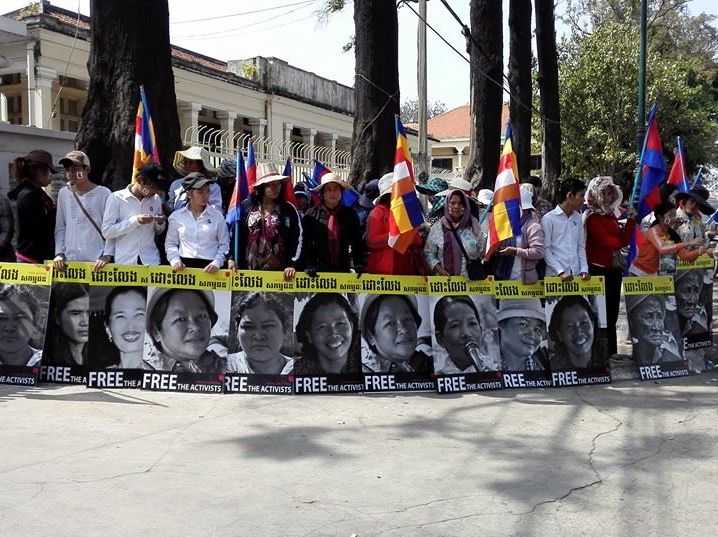Without meaningful reform to strengthen judicial independence, politically motivated cases against critical voices and unfair trials are likely to continue, CCHR notes.
This statement was originally published on blog.sithi.org on 24 April 2015.
Khmer New Year is traditionally a time to reflect on the year that was, and look forward to what the future will bring. This year’s festivities began on a positive note, with the release of imprisoned land rights activists and opposition party members. However, while certainly cause for celebration, the significance of the move should not be over-stated: the releases are reportedly the result of political bargaining between the CNRP and ruling Cambodian People’s Party, following months of negotiations related to the reform of the National Election Committee. Without meaningful reform to strengthen judicial independence, politically motivated cases against critical voices and unfair trials are likely to continue.
In 2014 Cambodia ranked 156th out of 175 countries reviewed in Transparency International (“TI”)’s Corruption Perception Index, with the judiciary seen as the most corrupt national institution. According to TI’s Global Corruption Barometer, in 2013 65% of Cambodian respondents who had come into contact with judicial officers over the previous 12 months reported paying a bribe. One of the major reasons for the lack of confidence in the judiciary is a weak separation of powers. Following accusations that he was interfering in the progress of a high profile criminal case in February, Prime Minister Hun Sen said:
“…please examine these three powers – the legislative, the executive and the judiciary. They cannot be separated from each other.”
Allegations of undue executive influence over the courts are nothing new. Whilst already weak, judicial independence was further undermined by the adoption of three judicial reform laws in July 2014: the Law on the Organization and Functioning of the Supreme Council of Magistracy, the Law on the Statute of Judges and Prosecutors and the Law on the Organization and Functioning of the Courts. The laws were speedily passed without any prior publication or consultation with civil society, the public or other stakeholders.
The three laws effectively give both the legislature and the executive decision-making powers over the structure, functioning and financing of the judiciary, as CCHR and others have repeatedly highlighted. Speaking in Phnom Penh in July 2014, the United Nations Special Rapporteur on the Independence of Judges and Lawyers expressed serious concern that the laws undermine the principle of the separation of powers. A lack of judicial independence puts the right to fair trial at risk.
The Cambodian Center for Human Rights’ Trial Monitoring Project monitored and reported on fair trial standards at four Courts of First Instance between August 2009 to June 2012, and the Court of Appeal between March 2013 and January 2014. Over these periods, 2,735 trials were monitored.
The research found that in 82% of trials monitored, the judge failed to inform or explain to the defendant their right to remain silent. The right to a public hearing was also frequently denied, with public notices for the trial posted outside the Courtroom in just 25% of trials monitored. In addition, judges often failed to pay adequate attention, answering their mobile phones during proceedings in 23% of trials monitored.
Today, Ms Ly Seav Minh was finally released from prison after being denied bail several times since her arrest last November. However, she still faces charges of using violence against a possessor of an immovable property for attempting to resist the forced eviction of her family following a land dispute with the Khun Sear Import Export Company, after they refused to vacate a plot of land in the Boeung Kak area of Phnom Penh. The family has suffered death threats, violent attacks and intimidation as a result, but local authorities have done little to protect them from the harassment they have experienced. Ms. Minh’s family has filed several complaints before the Phnom Penh Municipal Court of First Instance, but to date no investigations have been conducted and the perpetrators of attacks against them have not been pursued.
While CCHR welcomes the recent releases of land rights activists and opposition party members, they do nothing to address the underlying weakness of the judicial system. This year, it is critical that political parties work together to prioritize meaningful reform to make the courts truly independent, and therefore better able to protect people from abuses of power.
– Katie Smith and Caitlin McCaffrie contributed to this blog post



